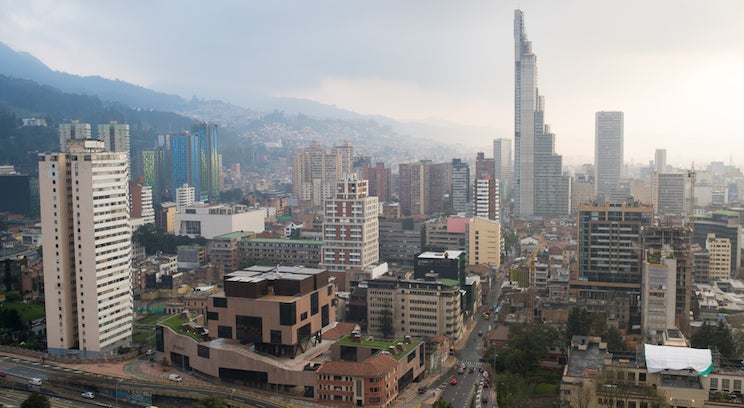
All businesses seeking to enter markets with in Latin America face a host of challenges and regional issues. For US businesses selling consumer products, in particular, the variety and breadth of the legal issues involved can get complex from the outset of any Latin American venture. It is important for all in-house counsel to familiarize themselves with the unique opportunities and challenges of doing business and complying with legal requirements in Latin America. Targeting expert local counsel and engaging the right people at the right time can mean the difference between a successful launch and a quagmire.
Among the myriad questions and problems to be solved when entering a new business venture in a new geographic region, Latin America presents a unique set of circumstances in the following areas:
- Intellectual property;
- Customs, importation, and counterfeiting concerns;
- Legal recognition of documentation;
- Notarization;
- Apostille;
- Full legalization; and,
- US Foreign Corrupt Practices Act (FCPA).
Intellectual property fundamentals and practice tips
Most jurisdictions in Latin America recognize the traditional framework of intellectual property protection and registration set up by the World Intellectual Property Organization (WIPO), the US Patent & Trademark Office (USPTO), and the European Union Intellectual Property Office (EUIPO). As such, most countries in Latin America recognize and allow registration for copyright, trademark, and patents (including design patents). For a trademark, in particular, it is important that both the image/logo and the wording/phrase are registered in conjunction with one another such that the name of a brand and its logo can appear together in commerce and advertising.
Intellectual property rights must be registered and aggressively defended in each jurisdiction. It is important to remember that registration in Latin America should be done on a country-by-country basis. This is due to the fact that while certain trade agreements are in effect for certain groups of countries within Latin America, there is no equivalent of an EU-style organization that affords protection across borders and outside the sovereign jurisdiction of each country within Latin America.
Upon registration of an intellectual property right such as a copyright, trademark, and/or patent, it is important to keep the following factors in mind:
Once registration is allowed and an intellectual property right is granted, the holder must use the intellectual property in question in order to continue to possess the rights to it. In certain jurisdictions in Latin America, five years of non-use in a commercial capacity results in an automatic presumption that the IP rights holder no longer has a claim to the registered IP, such as a trademark.
In-house counsel should work within their legal departments and outside counsel to routinely review IP notices for each jurisdiction. There are multiple databases, by industry, that compile all the new IP registration applications within a particular jurisdiction. In-house lawyers should review these new filings to ensure that no new party has attempted to file an IP registration that may conflict with an IP registration and/or IP property that is owned by your company.
Should in-house counsel become aware of any potential conflicting IP registration or attempted registration, a notice of opposition may need to be led in a particular jurisdiction. Local counsel should be immediately contacted to evaluate the need for any opposition filing(s), the due dates for any such opposition notification(s), and the logistical and administrative processes involved (see below for a more detailed discussion regarding recognition of legal documents in Latin America, including documentation affecting IP rights).
In working with third party vendors, agents, and business partners, any contractual agreements should contain relevant IP provisions, including limited use licensing rights, valid only for the period of the contract and/or until all inventory bearing any IP of the manufacturer is fully depleted. The underlying IP rights should remain with the rights’ holder. Any conflict arising between the parties may stipulate that World Intellectual Property Organization (WIPO) provisions shall govern and disputes may be resolved through arbitration. For any conflict resolution provisions that may need to be resolved in Latin America, Chile provides a good option for governing the law and venue, as Chile has a stable government and legal system, well-developed civil institutions, and a robust arbitration system that recognizes international judgments.
Customs and importation aspects and counterfeiting concerns
Any company or business seeking to import any goods to Latin America will have to navigate the complex framework of individual customs within each Latin American country and territory. Handling customs officers and laws of importation is particularly important when seeking to enforce IP rights in a Latin American jurisdiction. Customs officers are trained to review, examine, and authorize the importation of goods that are deemed to be authentic and comply with the IP rights of the manufacturer.
It may appear counterintuitive that a foreign customs officer or agent would enforce the legal rights and IP of an American company. However, the reasoning behind this initiative is that customs agents want to ensure that consumers in their jurisdiction are able to obtain bona fide goods from the rightful IP owner and do not fall victim to counterfeiting schemes. As such, it is important to form a good working relationship and partnership with customs in each Latin American jurisdiction where your company’s products are imported and sold in order to maximize IP rights protections and enforcement.
Certain jurisdictions, such as Brazil, for example, offer detailed, in-person training for its customs officers that US companies should take advantage of. A US manufacturer, importer, or seller may hire local counsel, forensic accountants, or other service professionals to coordinate and organize the training sessions at individual ports of call across Latin America. The training will include identifying counterfeit goods, discussing the basics of IP protection, and learning what customs agents must go through to evaluate the goods sought to be imported. Local counsel may also work with law enforcement and private security companies to engage in raids, seizures of counterfeit goods, and arrests of those breaking the law by selling known counterfeit goods.
One of the main reasons that counterfeit goods continuously find their way into the Latin American market is due to high importation taxes and trade-prohibitive tariffs. For example, Brazil has levied multiple types of importation taxes, which add to the costs of imports into the country. This, in turn, incentivizes the counterfeiting of goods popular in Brazil. Mercosul is a trade association seeking to establish a common Southern trade market within Latin America. It is comprised of Brazil, Argentina, Paraguay, Uruguay, and, most recently, Venezuela as of 2012. These countries often levy multiple layers of importation taxes.
First, there is the main import duty that can typically range from 10 percent to 35 percent, depending on the product and the jurisdiction. It is a product-specific import tax that is levied based on cost, insurance, and freight for the product. Second, there is an industrialized product tax, which is assessed on imported products at the time of customs clearance. This tax is levied against the end user of the product, not the importer, which further incentivizes counterfeiting as the costs of products in certain markets grow exponentially due to multiple tiers of taxation for the consumer. Finally, there is a merchandise and service circulation tax, which is a government-imposed value added tax. It is factored into the final price paid by the consumer and typically hovers between seven percent and 18 percent rate of taxation.
When added together, taxation on imports can get very high in certain Latin American jurisdictions, most notably in Brazil. This contributes significantly to counterfeiting. In-house counsel should advise their company’s business units regarding these extra costs of doing business in certain Latin American jurisdictions. As discussed above, one the best methods for combating counterfeiting and strengthening IP rights in Latin America is to work directly with customs officers at specific ports of call and create a vigilant network of local counsel, security firms, and customs agents to enforce IP rights of US-based manufacturers and importers.
Legal recognition of documentation in Latin American jurisdictions
In connection with enforcement of IP rights, including those that arise from importation of products into Latin America, in-house counsel should be aware of the different levels of legal recognition for documentation in Latin America. Typically, in order to engage local counsel’s assistance with an IP issue, a power of attorney will be required. This power of attorney, to be signed by a corporate representative in the United States, will authorize the local counsel in a particular Latin American jurisdiction to act on behalf of the US company, file documentation with local IP offices, enforce rights, and enter into legally binding agreements. In the United States, a power of attorney is typically signed by the maker. In some circumstances, it may be notarized.
In Latin America, notarization by a notary public in the United States is not always accepted. In some circumstances, an apostille may be required. An apostille is a confirmation from a particular US federal or state authority that the notary signature on a particular document is authorized and that notary is licensed, active, and in good standing with that particular state. An apostille certifies that the signature, seal, and stamp affixed to the document are each authentic. For example, Paraguay may require that a notarized power of attorney from the United States is accompanied by an official apostille confirmation from the state where the document was notarized, attesting that the notary in question is properly licensed as such in that particular state and that the document is properly notarized.
Certain jurisdictions in Latin America go even a step further, requiring full legalization of a document. Any country that has recognized the Hague Convention of 1961 does not require full legalization of documents, but does accept the apostille from a state or federal authority. This provision within the Hague Convention sought to simplify the recognition and the circulation of international documents. Brazil, for example, did not enact the Hague Convention until 2016, so the full legalization of documents is no longer required at present time. Chile, likewise, enacted the Hague convention in August of 2016, abolishing the requirement for full legalization of documents in that jurisdiction.
Full legalization of a document entails the submission of the document, notarized and apostilled, to the US Department of State, which issues its own confirmation that the individual state authority properly evaluated the underlying notarization and has the power and authority to do so. Full legalization of documentation may involve both the US Department of State and the consular authorities of the jurisdiction where the legalization of a document is sought to be recognized. It can take several months to complete, depending on the workload at the US Department of State, and entails filing fees and costs of several hundred dollars per document.
In-house counsel should be encouraged to check at the onset of working with any Latin American jurisdiction as to whether that jurisdiction is a party to the Hague Convention, requires full legalization of documents, and/or accepts US based notarization of documents.
Foreign Corrupt Practices Act — Latin American edition
Finally, no analysis of entering the Latin American market for a US-based company can be completed without a discussion of the FCPA. This US-enacted legislation is enforced by the US Department of Justice (DOJ) and, since 2010, a special unit within the US Securities & Exchange Commission (SEC). FCPA, at its core, prohibits US companies from bribing foreign officials in order to procure business and/or government contracts.
Due to a high degree of corruption risk within Latin America, the DOJ and the SEC are keenly focused on this part of the world for FCPA compliance. Investigations commonly start when a competitor, a disgruntled vendor, or an outside third party informs US regulators regarding potential FCPA violations by a US-based company that sells its products or services internationally. There are dozens of active DOJ investigations currently underway against several US companies (or those that have a presence in the United States) relating to FCPA violations. Just in the second half of 2016 and 2017 alone, here is a representative list of publicly disclosed FCPA investigations relating to Latin America, which are currently with the special unit of the SEC:
US Securities & Exchange Commission, SEC Enforcement Actions: FCPA Cases.
- Orthofix International — is Texas-based medical device company agreed to pay more than US$6 million to settle charges that its subsidiary in Brazil used improper payments and high discounts to induce doctors under government employment to use Orthofix products.
- SQM — is Chilean-based subsidiary of a chemical and mining company agreed to pay more than US$30 million relating to alleged violations of the FCPA by making improper payments to Chilean political figures.
- Biomet — is Indiana-based company and medical device manufacturer agreed to pay more than US$30 million to resolve DOJ and SEC investigations of FCPA violations relating to anti-bribery in Brazil and Mexico.
- Braskem S.A. and Embraer — A Brazilian petrochemical manufacturer and an aircraft manufacturer, respectively, each agreed to pay US$957 million and US$205 million in global settlements relating to FCPA violations, including alleged illicit bribes to Brazilian government officials.
- LAN Airlines — This South American airline agreed to pay more than US$22 million to settle cases relating to improper payments to union members in Argentina. One of the reasons that FCPA is such a hot button issue for business dealings in Latin America is due to readily available information regarding corruption and bribery risks there. There are corruption perception indexes put out by several American think tanks that rank the likelihood of corruption in jurisdictions around the world. While some Latin American jurisdictions rank well and are considered low risk, a multitude of other Latin American jurisdictions rank high on the risk scale and present strong likelihood of corruption on the local level. For example, the Transparency International Corruption Perception Index (TRACE Matrix), most recently available for the year 2016, measures the global business bribery risk and FCPA risk in 199 countries around the world.
The matrix is based on four key factors within each individual country:
• Business interaction with government agencies;
• Anti-bribery laws and enforcement mechanisms;
• Government and civil service transparency; and,
• Capacity for civil society oversight.
Each country is ranked, with one being the “most safe” and 199 being the “most corrupt.” The most problematic jurisdictions for FCPA issues within Latin America are Venezuela (ranked 187); Brazil (ranked 167); and Argentina (ranked 141). The best fairing Latin American countries are Chile (ranked 27) and Colombia (ranked 58). Some of the counties in the top 10 are Sweden, New Zealand, Hong Kong, Ireland, the Netherlands, Singapore, and Denmark, each representing an overall low risk of corruption, bribery, and FCPA violations. The United States, likewise, is a safe jurisdiction, ranking in at number 20.
Companies seeking to conduct business affairs in Latin America need to focus compliance efforts and due diligence on FCPA issues. For example, regular training for sales staff, vendors, and business partners operating within Latin America should be mandatory and FCPA should be a robust topic of discussion. Any local consultants that are hired to advise on local issues within Latin America need to compile detailed reports of what services they provide in exchange for any compensation they have received. General references to “consulting,” “marketing,” or “independent research” are common red flags used by US regulators in FCPA investigations. Any substantial payments made to any local businesses and/or officials in Latin America need to be scrutinized by in-house counsel and reported internally for compliance and auditing purposes.




